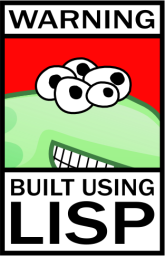Cross-Platform GUI framework written in Common Lisp
- Write Cross-Platform GUI application easily in Common Lisp
- Compiles to Linux / macOS / Windows
- Deploy your application in One Single File
-
The Common Lisp Cookbook
-
LTK: LTK - The Lisp Toolkit
- cl-pkr Cross-Platform Color Picker Written in Common Lisp
-
Make sure you have SBCL with Quicklisp installed
-
Make sure you have a bin folder and have a proper tclkit inside
mkdir -p binor just right click to create a folder namebin- Download yourself a proper tclkit and rename it to
tclkit-guihere
-
build your application
sbcl --disable-debugger --load cl-icebox.asd --eval "(ql:quickload 'cl-icebox)" --eval "(asdf:make :cl-icebox)"
Voilà! Check your bin folder for the magic!
Eval
(progn (load "cl-icebox.asd") (ql:quickload 'cl-icebox) (setf cl-icebox::*hacking* t))in your REPL, then you can call(cl-icebox:icebox), have fun!
There's two options:
-
Use Travis CI for the good of your health
you need to add
GITHUB_TOKENaccording to uploadtool -
Use
deploy.shin the root folderRun
deploy.shand then check youroutfolder.- Linux and macOS should work out of the box (unless you don't have wget or internet connection).
- on Windows, you need to have
- A decent BASH, Git BASH or MSYS2 both should work fine
- Make sure you have unzip and wget in your BASH.
- EDITBIN which is part of Build Tools for Visual Studio
- Find the location of your
vcvarsall.bat, then opencmd, and callvcvarsall.bat x64 - Then, type
where editbin, you'll get the absolute path ofeditbin.exe export EB='C:\long path with space\editbin.exe'in your BASH- Now you are blessed to run
deploy.sh
- Find the location of your
- Icon made by Freepik from www.flaticon.com
- Tcl/Tk
- Tclkit build system http://tclkit.googlecode.com/, forked here
- Resource Hacker
- Warp
- AppImage

